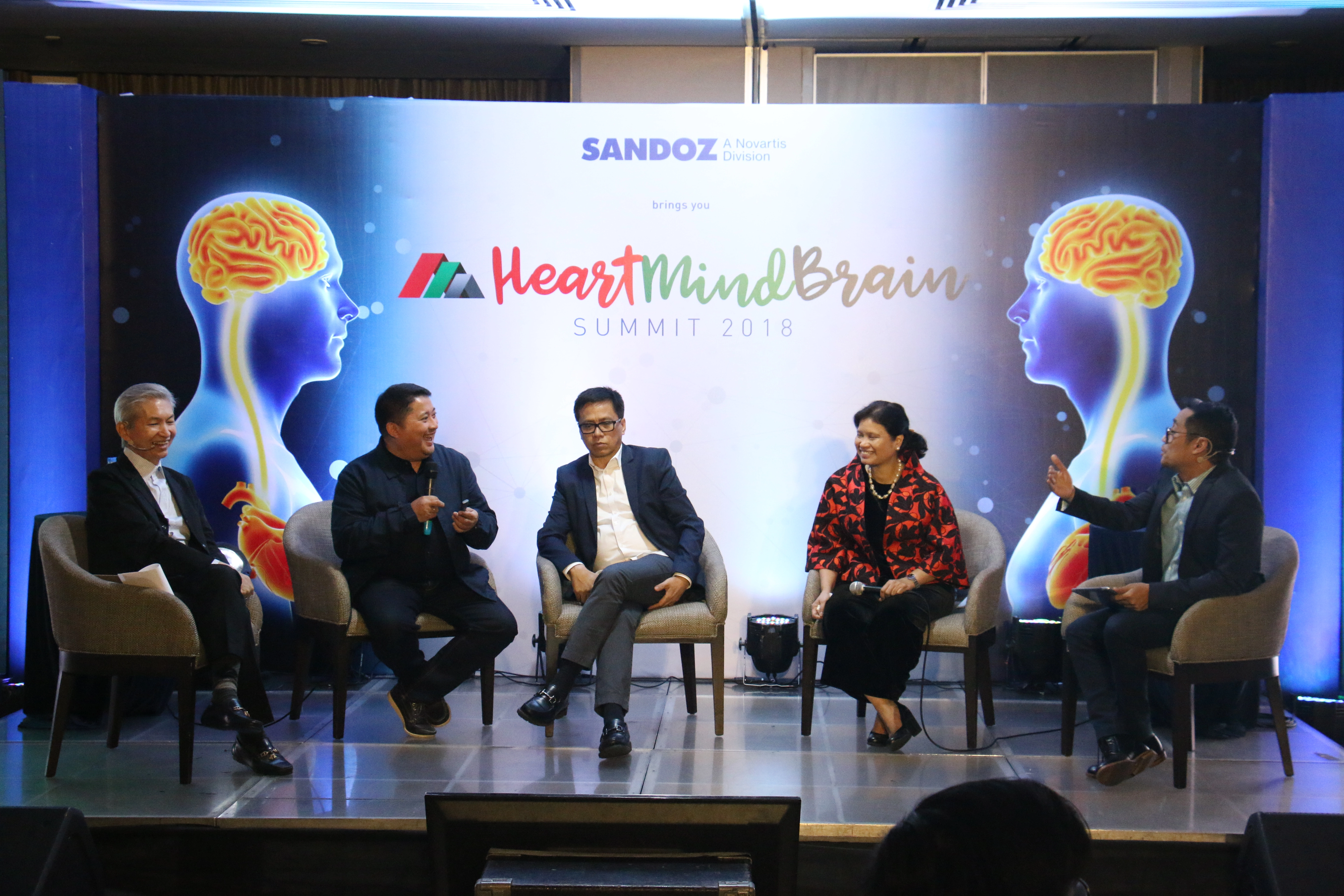Research shows that many individuals with cardiovascular disease have increased levels of depression and anxiety symptoms, while those who suffer from mental illness are at a higher risk of suffering from cardiovascular disease. This indicates a clear need for heightened screening and preventative care for patients with cardiovascular and neurological illnesses.
To help shed light on this important issue, Sandoz Philippines Corporation gathered Filipino cardiologists, neurologists and psychiatrists for its first ever Heart, Mind and Brain Summit. Held on November 24, 2018 at the Ascott Hotel Makati, the summit served as a venue for local specialists in cardiology, neurology and psychiatry to discuss the intimate, intricate and underestimated relationship between the heart, the mind, and the brain.
“In line with the Sandoz mission to improve and extend people’s lives, we are honored to collaborate with Filipino cardiologists, neurologists and psychiatrists in unraveling the interaction between the heart, mind and brain and the most basic risk factor, which is stress,” said Ms. Eleanor Lopez, Country Head of Sandoz Philippines Corporation, the local subsidiary of generics global leader Sandoz.
Featuring an interactive discussion format, the summit centered on an expert panel discussion of a hypothetical case study involving a doctor, which highlighted the interrelation between hypertension, stroke, depression and dementia. Cardiologists, neurologists and psychiatrists in the audience asked questions from the panel and shared their insights during the open forum.
The expert panel consisted of Dr. Gerardo Carmelo Salazar, consultant neuro-psychiatrist at the Lucena United Doctors Hospital and Medical Center; Dr. John Añonuevo, consultant interventional cardiologist and Chief, Section of Cardiology, Department of Internal Medicine, University of the Philippines-Philippine General Hospital (UP-PGH); and Dr. Epifania Collantes, consultant neurologist and stroke specialist at the Manila Doctors Hospital and UP-PGH.
The summit’s moderators were Dr. Antonio C. Sison, consultant psychiatrist at St. Luke’s Medical Center and Medical Towers Medical City, and consultant dermatologist at the Skin and Cancer Foundation, Inc.; and Dr. Don Robespierre Reyes, consultant cardiologist and Editor-in-Chief of The Heart News and Views, the official magazine of the Philippine Heart Association.
“In an attempt to cope with stress, some individuals adopt unhealthy lifestyles or behaviors such as smoking, excessive alcohol intake or even overeating,” Dr. Sison said. He explained that exploring how the brain manages stress and discovering why stress increases the risk of cardiovascular disease would enable doctors to develop new and effective ways of managing chronic psychological stress. This, in turn, can help doctors identify at-risk individuals so that they can undergo routine screening and optimal stress management.
The effect of stress on doctors was one of the topics discussed during the summit. A study by the American Medical Association and the Mayo Clinic found that compared with the general U.S. population, physicians worked on average 10 hours more per week, displayed higher rates of emotional exhaustion and reported lower satisfaction with work-life balance.1 According to Dr. Sison, physicians who are stressed are prone to make mistakes in patient care. “This is something we do not want.” He urged doctors to first recognize and manage their own stress levels so that they can provide optimal patient care.
Dr. Collantes warned that “stress is one of the major risk factors for heart attack and stroke.” Dr. Añonuevo agreed. “Aside from hypertension, high cholesterol and smoking, cardiologists also need to consider stress in assessing the cardiovascular risk of their patients.”
According to Dr. Salazar, stress is actually a vague word, noting that stressors and their effects vary across individuals. He explained that there are currently no standardized and validated parameters to quantify stress; as such, assessing stress levels is done on an individualized basis. “But it is clear that uncontrolled and prolonged stress negatively impacts virtually all the organs of the body.”
Dr. Reyes asked his colleagues “to listen to what our patients are not telling us. This can help us identify depression and dementia. By listening closely to our patients, we can become better doctors.”


About Sandoz
Sandoz is a global leader in generic pharmaceuticals and biosimilars. As a division of the Novartis Group, our purpose is to discover new ways to improve and extend people’s lives. We contribute to society’s ability to support growing healthcare needs by pioneering novel approaches to help people around the world access high-quality medicine. Our portfolio of approximately 1000 molecules, covering all major therapeutic areas, accounted for 2017 sales of USD 10.1 billion. In 2017, our products reached well over 500 million patients. For more information, please visit https://www.sandoz.com/
Sandoz is on Twitter. Sign up to follow @Sandoz_global at http://twitter.com/Sandoz_Global